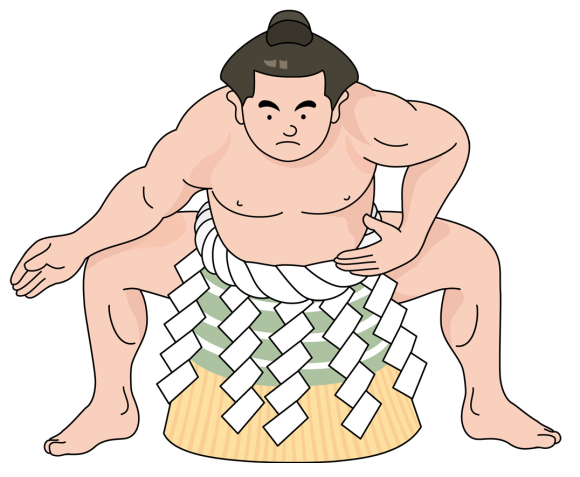
Could a straw man survive the attack of even a single sumo wrestler?
When trying to learn a foreign language, I’m actually a pretty big proponent of classroom instruction. Sure, you could try to pick up everything organically, like you did with your first language when you were a baby, but putting a bit more effort and structure into the learning process generally tends to yield faster, better results when you’ve got a more mature mind.
That said, the drawback to taking a foreign language class is that, by necessity, the subject material covered is what has the greatest chance of being used by any given student. As a result, formal courses often skip over phrases that, while not the most broadly applicable, can still be extremely useful in a specific set of circumstances. For example. how do you say “straw man” in Japanese?
Actually, the phrase is a combination of two pretty simple pieces of Japanese vocabulary, one of which you most definitely already know. Let’s start with the marginally more difficult of the two halves, though: hitori.
Hitori (which is usually written with less fancy characters as 一人) literally means “one person.” By association, though, it also means “alone” or “by oneself,” so it makes sense that it’d show up in an expression used to describe someone attacking a stance that no one is actually taking.
Speaking of attacking, we still need something to evoke the unilateral onslaught in an imaginary and one-sided debate, and what better way to do that than by borrowing the name of Japan’s most aggressive indigenous sport…
…sumo!
So put those two halves together, soften the “S” in “sumo” into a Z, and you get hitorizumou, literally “one-man sumo,” which paints a pretty clear picture of someone fighting adversaries that don’t actually exist.
▼ Hitorizumou
Turned into a verb-phrase, hitorizumou becomes hitorizumou wo toru. As is always the case with the Japanese language, you can make it sound gentler or harsher depending on the grammar you sprinkle around it. A politely-voiced “Hitorizumou wo toranaide kudasai” can come off of as soft as “Don’t go tilting at windmills,” where as a spat-out “Hitorizumou wo toru n ja ne yo!” lands closer to “Enough with the straw man bullshit.”
In either case, though, if someone calls you out on doing some one-man sumo, and you realize he’s got a point, a sumimasen (“I’m sorry”) might be in order.
Top image: Gatag
Insert images: RocketNews24, Wikipedia/Eckhard Pecher
Follow Casey on Twitter for more words they don’t teach you in Japanese class.